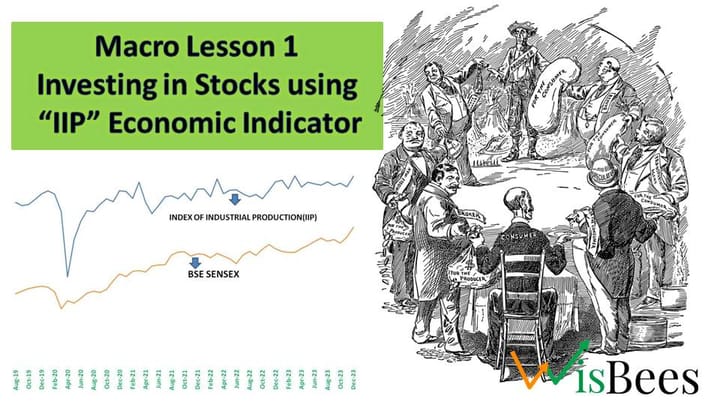The story of the Unicorn meat delivery brand “Licious”- touched the untouched industry.


Does the image above ring any bells? The house? It's the Big Boss 16 house. And there, by the window, stands the representation of "Licious," India's largest online meat and seafood delivery platform—a D2C farm-to-fork business. With unicorn status, the company has successfully disrupted the unorganized meat industry. Licious created quite a buzz when it became a part of the popular show, Big Boss, presented by Salman Khan.
“Today, this 1.7 billion-dollar company has disrupted the previously untouched processed meat industry in India.”
When I was a boy, I used to go for meat shopping as I had gained fame in my home for bringing high-quality mutton, fish, and other non-vegetarian items. My father had a bad track record of buying spoiled meats, so my family relied solely on me for procuring non-vegetarian food. I used to pretend that I knew how to distinguish good meat from bad, but the truth was that I never really knew. Perhaps it was my innocent chubby face and sweet words that persuaded the shopkeepers to deliver good quality. However, nowadays, the younger millennials may not possess the same level of knowledge on how to assess freshness and quality. Nevertheless, they are digitally savvy, which leads them to seek out options for quality and online meat delivery. The processed meat industry remained untouched for a long time due to cultural barriers and beliefs, but it is no longer ignored. Mammoths are emerging to seize this significant opportunity.
Before Covid, people had the habit of going to the wet market to purchase meat. However, when Covid emerged, people were unable to leave their homes, and hygiene became a significant concern. In metro cities like Bangalore, Hyderabad, Delhi, and Mumbai, individuals used to rely on purchasing frozen meats from nearby shops, which raised questions about hygiene. This led to the rise of online players such as Licious, FreshToHome, Zappfresh, and TenderCuts, who specialize in delivering fresh, hygienic, odor-free, and antibiotic-free meat products.
Although the prices were slightly higher, consumers in metro cities with higher disposable incomes opted to purchase meat online for the convenience of shopping from home. These online platforms also promised freshness, hygiene, and a wide variety of options. In this article, we will focus on "Licious," which has emerged as a prominent player among its competitors, and explore the reasons behind their success.
Do you remember during the Covid pandemic when people were fearful of consuming meat due to rumors spreading that it was a source of the Corona virus? However, these rumors were gradually debunked by numerous nutritionists, and government sources confirmed that consuming meat and fish is necessary for a well-rounded nutritional intake. As a result, the decline in revenue that occurred due to the fear of meat consumption was reversed, and companies like Licious experienced a significant increase in revenue. The image below, sourced from Statista, illustrates this trend.

In 2022, the sales increased by almost 64.6% compared to the previous year, with the majority of the increase coming from product sales, while service sales accounted for only 12 crores. The parent company of Licious is "Delightful Gourmet". Below is a pie chart depicting their expense patterns in 2022.

The company is not profitable overall; however, it has achieved a gross profit. The company is currently in a phase of growth and expansion, aiming to capture and penetrate the market, which has led to increased costs. Despite this, the long-term scenario appears promising. The question arises: why does it look good in the long term?
Let's explore how Licious operates and delve into their business model!
The Story of Its origin.
Before we delve into Licious' business model, let me share the story of its origin. Licious, India's first D2C unicorn brand, was founded by Abhay Hanjura and Vivek Gupta. Abhay Hanjura, an employee at an insurance broking firm, hails from a pure vegetarian family. When he decided to venture into the meat business, he faced the threat of being ostracized by his family. Despite the expected reaction, he proceeded to establish the startup with his friend Vivek Gupta and achieved unicorn status in this previously untouched market.
It’s a Unique Business Model: Farm to Fork Approach.
Licious follows a "Farm to Fork" approach, giving them control over the entire supply chain of their meat products. In this model, Licious ensures that the meat is sourced directly from trusted farms that uphold high standards of quality, animal welfare, and sustainability. They meticulously monitor the entire production process, including processing, packaging, and distribution, to maintain the freshness, safety, and traceability of their products. This approach aims to foster transparency and trust among consumers. The model is inspired by Amul, which owns its entire backend supply chain and eliminates the middleman costs. Around 50% of Licious' meat is sourced from their own farms and processed in their own centers.
Build the trust; everything else follows!
Licious made an innovative move to gain trust by replacing the traditional black plastic bags used in meat shops. The competition is intense, with the presence of other meat brands like TenderCuts, ZappFresh, and Fresh To Home. Fresh To Home, backed by a funding of 104 million USD from Amazon, has likely reached a valuation of 800 million USD. While Licious currently holds a valuation of 1.47 billion USD, the support from venture capitalists for these meat brands may trigger a price war, potentially affecting profit margins. However, it is worth noting that Fresh To Home has been recently focusing more on the UAE market.
Licious guarantees delivery within 90 minutes and boasts less than 5% wastage. According to co-founder Vivek Gupta, Licious has amassed approximately 2.8 million consumers to date, with around 1.1 million monthly transactions. The average order ticket size ranges between Rs 600 and Rs 650.
Indian meals often lack sufficient protein, with protein intake falling below the recommended levels by doctors. Post-Covid, people have become more health-conscious and are increasingly focusing on animal protein, leading to projected growth in this sector, along with the meat cravings of urban dwellers.
Another significant growth factor for online players like Licious is the large unorganized retail meat industry in India. Licious has the opportunity to cater to the entire segment, as the meat industry in India is mostly dominated by local players. With 73% of Indians being non-vegetarian, Licious can cater to the majority of the population, while also introducing plant-based meat alternatives to serve both vegetarians and core meat lovers. The demand for plant-based meat alternatives is increasing globally. However, Licious may face strong competition in the plant-based meat category from international brands like Tata simply better and Beyond Meat.
Licious boasts a high rate of repeat purchases, with 90% of its users making repeat orders, indicating a changing buying behavior among Indian customers towards buying meat. According to a survey, 88% of Licious users hold college degrees, suggesting that the brand attracts the educated masses and high-income individuals. Among the top 10 grocery delivery companies, Licious holds the 10th position, while Amazon hold’s the rank 1.
To capture the market's attention, Licious adopts unique advertising approaches, such as their campaign slogan "Kyuki Khali ke paas hai Licious ka All You Can Meat Buffet!" They have also become an associate sponsor of the Big Boss with featuring “Nakhre” dialogue by Anil Kapoor.
Capturing a Growing Market.
Over the past six years, Licious has experienced a remarkable 300% growth in its meat product brands. The processed meat industry in India is projected to grow at a rate of 6.8% from 2022 to 2028, reaching a value of 3.61 billion USD by 2023. Licious aims to capture a significant portion of this market and currently leads the industry, striving to cover the entire fragmented market. With substantial funding from venture capitalists, Licious has the advantage of capturing more market share.
According to Fresh to Home, the current size of the meat industry in India is 750 million USD. When combined, Swiggy, Licious, and BigBasket account for less than 1% of the entire industry, highlighting the immense untapped potential for these meat brands.
IPO kab ayega??
Once Licious achieves positive EBITDA and becomes profitable, the company may consider listing for an Initial Public Offering (IPO). Co-founder Hanjura has mentioned the possibility of an IPO in the next 3-4 years. Currently, Licious holds the prestigious status of being India's first D2C Unicorn, with a valuation of 1 billion USD or more. The company's latest funding round, led by IIFL's Late Stage Tech Fund, contributed to its unicorn status. Operating in 28 cities in India and fulfilling 2 million monthly orders, Licious secured a substantial funding round in July 2021, raising 192 million USD at an approximate valuation of 650 million USD. The company plans to achieve profitability and positive cash flow in the next few months before considering filing for an IPO.
Tapping into Untapped Potential.
Compared to more developed countries, online meat delivery is still in its nascent stages in India. However, this presents an opportunity for Licious, as an early player in the Indian market, to expand and make significant strides. With the increasing demand for online meat delivery services in India, Licious has a competitive edge in capturing a larger market share and establishing itself as a prominent industry player. As the industry matures and more consumers embrace the convenience of online meat ordering, Licious is well-positioned to tap into the untapped potential and drive further growth in India.
Article Sources
Business world magazine
Deccan Herald
Economic Times
Statista
EMIS
| Broker | Type | Offerings | Invest |
|---|---|---|---|
 |
Discount Broker | Mutual Funds, Stocks, IPOs, Bonds | Know more |
 |
Discount Broker | Mutual Funds, Stocks, IPOs, Bonds | Know more |
 |
Discount Broker | Mutual Funds, Stocks, IPOs, Bonds | Know more |
 |
Service Broker | Mutual Funds, Stocks, IPOs, Bonds | Know more |



